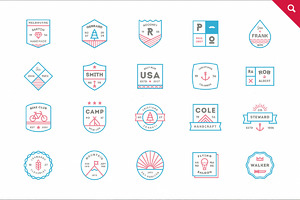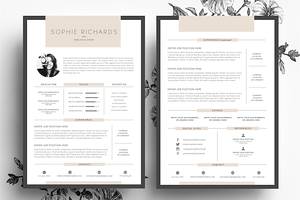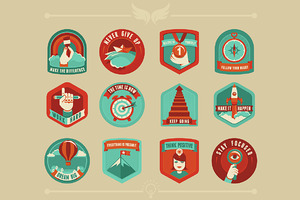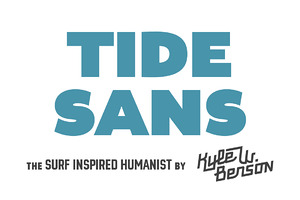One of the most essential factors shared amongst genius designers is creativity. Yingxu Wang, the president of the International Institute of Cognitive Informatics and Cognitive Computing defines creativity as “the intellectual ability to make creations, inventions, and discoveries that bring novel relations, entities, and/or unexpected solutions into existence.” Creativity seen as a cognitive process is great evidence that creative talent is an innate gift of genetics. However, it does take a good deal of knowledge, time, and process to turn creative revelations into realities. Discovery News gives a good introduction to the nature v.s. nurture debate in creativity.
Born a Designer?
The most important fact that this argument has is the anatomy and physiology of creativity: the brain. The Department of Neurology and Neuroscience at Cornell University is putting proof behind this belief. They discovered that connectivity and communication between the two hemispheres has a lot to do with creativity. Writers, musicians, and artists have smaller corpus callosums (the main bundle of nerves that connect the two sides in the brain stem,) which allows for each side of the brain to gain mastery over different specialties.
However, the widespread connectivity throughout the brain seems to be higher in creative people. It seems there is a definite correlation between the brain genetics give a person and how creative they are. Here is a video from Get Scattered that features fashion designers young and old giving their opinions on the nature vs. nurture debate.
Made a Designer?
While an outright genetic predisposition to create can’t be denied, there is an abundance of evidence that geniuses are products of their environment. As one article puts it, “Baby [Michael Jordan] didn’t pop out doing a Windmill Dunk.” Regardless of innate gift, what truly makes someone great is their own and their environment’s ability to cultivate a place where they can be given opportunities to create and discover what they love. Passion, motivation, and obsession are three factors as important as talent that take time to discover.
Dr. Carol S. Dweck of Stanford University said “[Research tells] us that many well-known geniuses were ordinary bright children who became obsessed with something and because of that obsession ended up making enormous contributions.” If you have twenty minutes, watch this TED Talk from Dilip Chhabria, a notable transportation designer where he fleshes out his ideas on geniuses being made, not born.
So Can Anyone Be a Designer?
Yes, theoretically speaking, any human has the potential to choose to use their inherent knack for design and to practice and hone the skills required. This requires a great commitment from individuals who choose to follow the path, but if you’re interested in creating some of the most iconic and beautiful art of our culture, practice these habits to increase your skills:
Constantly Look for Training and Vocational Opportunities
Experience is the best teacher. Take to the internet and find design training seminars or classes and internships or entry-level positions to experience the professional world and learn from working designers.
Ask for Feedback and Portfolio Reviews
Critiques are like candy for the smart designer, because each piece of feedback is a key to unlocking their own artistry.
Get Inspired by Great Work from Other Designers
Check out design marketplaces around the web, as well as other designers’ portfolio work in Tumblr, Pinterest, Behance, Dribbble, and other visual networks. They’re full of great work from young professionals.
Develop and Honor a Schedule with Specific Learning Goals
Try to focus on completing a unique goal each week that will contribute to a bigger goal at the end. For example, setting out to master a tool set in Photoshop sounds like a lot, but if you break them down into groups that you can cover each week, the task will seem more manageable.
Stand on the Shoulders of Giants
Templates are a new designer’s best friend. They can often give you a strong foundation to build on, instead of having to design an entire piece from scratch. Creative Market has an enormous selection of templates to choose from.
These are some of the most popular ones:
Read these Books
Here are some essential reads for every designer:
- The Elements of Graphic Design by Alex White
- Above the Fold: Understanding the Principles of Successful Web Site Design by Brian D. Miller
- The Design Career Handbook by Creativebloq
- Design for Hackers: Reverse Engineering Beauty by David Kadavy
- Thinking With Type by Ellen Lupton
Born and Made
Great designers definitely have an “it” factor that separates them from other professionals in their field, but whether that special ability is something that is passed down or is learned in each new human will continue to be debated and discovered as time goes on. But it seems like the more salient answer is that a healthy mix of both gives the ambitious the edge.
Products Seen In This Post:

Are Designers Born or Made?






No comments:
Post a Comment
Note: Only a member of this blog may post a comment.